Interview by Les Tan, Dawn Yip and Jan Lin
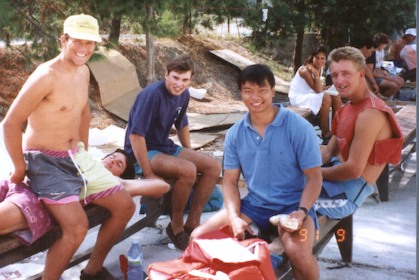
Ben Tan in Greece during the 1991 World Championships at age 24. (Photo courtesy of Dr Ben Tan)
Dr Benedict Tan, 41, is a three-time Sportsman of the Year award winner and won a gold medal at the 1994 Asian Games in Hiroshima, Japan.
In 1995, he broke into the ranks of the top 50 sailors in the world, and finished 36th out of 86 competitors at the 1996 Olympic Games in Atlanta, USA.
Ben is currently the Head and Senior Consultant of the Changi Sports Medicine Centre. He also sits on the board of the Singapore Sports Council and is a member of the Singapore National Olympic Council.
In recent years, he has turned his focus to long-distance running, and recently finished as the third-fastest Singaporean in a personal best time of 2 hours 56 minutes 20 seconds at the 2008 Singapore Marathon.
Here is his story.
Part 3
Who were your sparring partners?
A lot. Wee Tun Liang, Casey Tan, Tan Wen Hao, Stanley Chan, quite a lot…they are all happy sailing with me. They themselves improved as well, of course that is their ultimate motivation, that's why we have to share.
When was your first international race?
Asian Fireball Championship. That was in Thailand in the 1970s.
Did you pay for your own trip, or did the government pay for that?
My father paid for it.
How did you do?
I won. I was 17 years old. Fireball is a class of boat, it's a 2-man boat and in Asia, Thailand is very strong in Fireball class because it is wooden construction and the Thais have the best boats.
In Thailand, since that time, they had a very strong expatriate community and besides the few Thais, it was mostly the expatriates, the British mostly who were based in Thailand, they were dominating the fireball scene. So I went there as an underdog. Nobody knew me.
That was my first international race and I won that one. My crew was Siew Shaw Her.
My father intentionally wanted me to sail 2-man boats, at least for a certain part of my sailing career because of the team work.
When sailing 2-man boats, partnership is very important so chances are, they end up fighting on the boat because of the pressure and all that. Quarrels are very common because of the pressure of having to make decisions fast.
Usually the way people work as a team on the boat, there is a skipper and a crew. The skipper is the boss and the crew is the manual worker, that's the kind of relationship that most people have. The rule is the skipper makes all the decisions and does all the tactics, the crew just do all the muscle work and the crew listens to the skipper, full-stop.
When I learnt how to sail 2-man boats, that was the norm in Singapore, but when I raced overseas, I saw that it need not be that way, it could be an equal partnership.
Co-partnership is much stronger, in the long term especially. Otherwise, if the skipper always gets the glory, why would the crew want to work for the skipper? The crew would also want to be the skipper. So the way I worked, which was the way we did it internationally, was an equal partnership.
The division of roles was such that the skipper was the one steering, and he needs to concentrate very hard. You are only a driver, like a bus driver. The crew becomes the tactician actually.
Why should the crew do the glorified role of tactics? It is because the crew has a better view of the course, so he can see what's happening, whereas the skipper has to look just at the bar and the sail, and to concentrate.
So it doesn't make sense that the skipper does the tactics, so we divide it this way where the skipper drives and the crew does the tactics and now the crew becomes important.
Then what about the recognition? In Singapore, at one point, every time they announce the results, they only mention the skipper and never mention the crew. I will always give my crew the glory, saying it's an equal partnership and they've got an equal hand in it.
So I always insist that they mention the crew's name but a lot of people don't do that. It's not the natural way of doing it because everyone wants the glory, so nobody fights for the crew. But if you don't fight for the crew, who would want to crew for you?
And if you don't have good crew, you're useless because you're only the driver and you can't see what's happening and all that. In sailing you need to be able to see and anticipate the wind or where the gust is coming from.
So that's the working relationship between the skipper and the crew. This was one of the reasons why I broke away from the Singapore convention - actually it is not Singapore's fault - it is the Asian mentality. Very hierarchical.
When my father made me sail 2-men boat, he arranged for adults and top sailors to be my crew, so that there is transfer of knowledge. That is why I always respected crews because they are all senior to me, they are the ones teaching me on the boat.
Related stories
"I nearly flunked my PSLE." An interview with Ben Tan – Part 1
"I was top 3 but got no CCA points." An interview with Ben Tan – Part 2
"It is very stupid to assume your opponents are less talented." An interview with Ben Tan – Part 4
"I didn't get any hand outs during NS." An interview with Ben Tan – Part 5
"In fact, people with bad attitude are the ones who do well." An interview with Ben Tan – Part 6

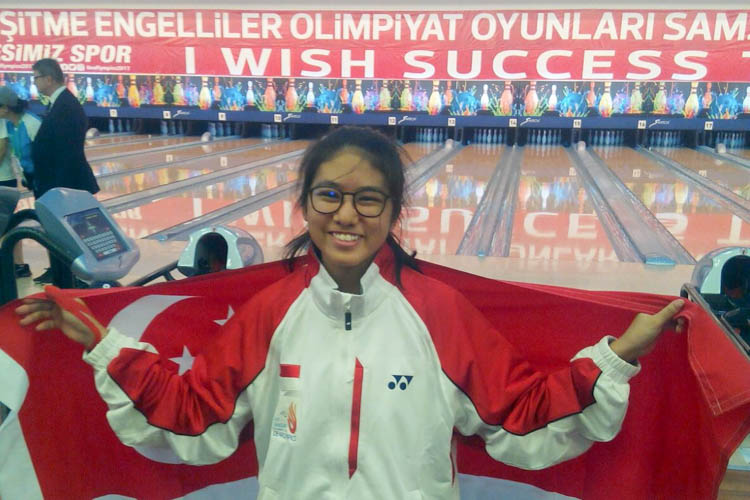
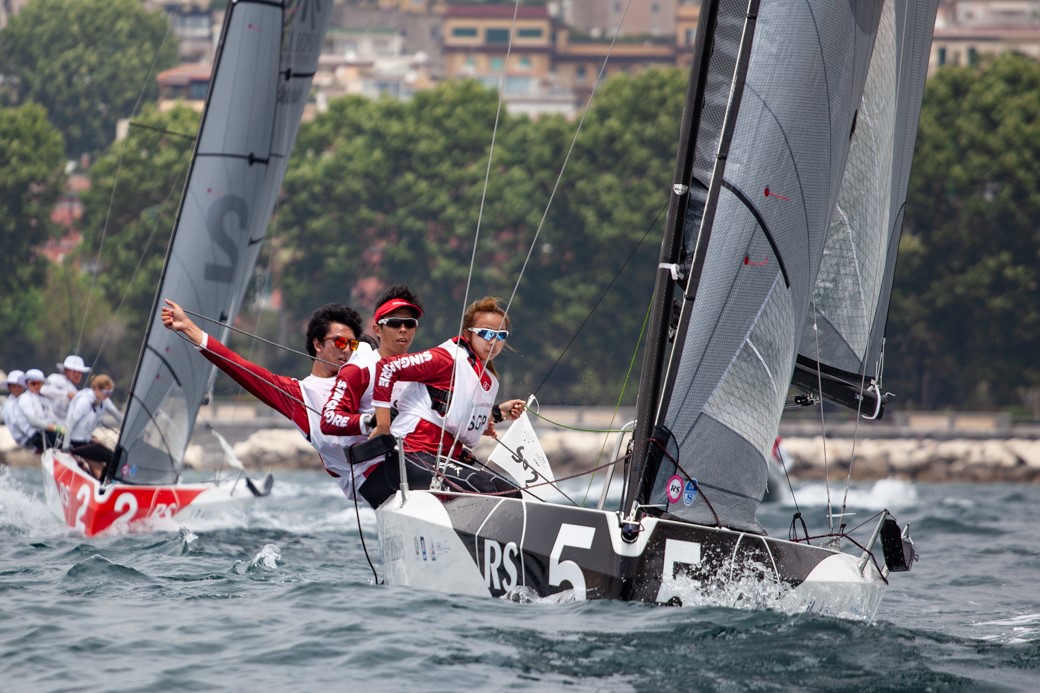
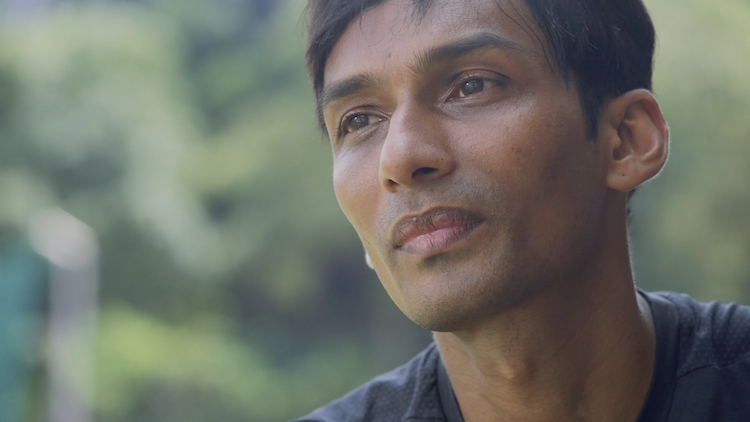
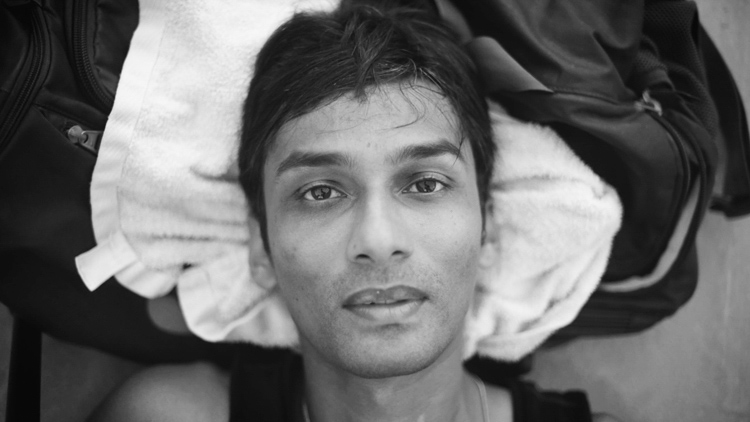
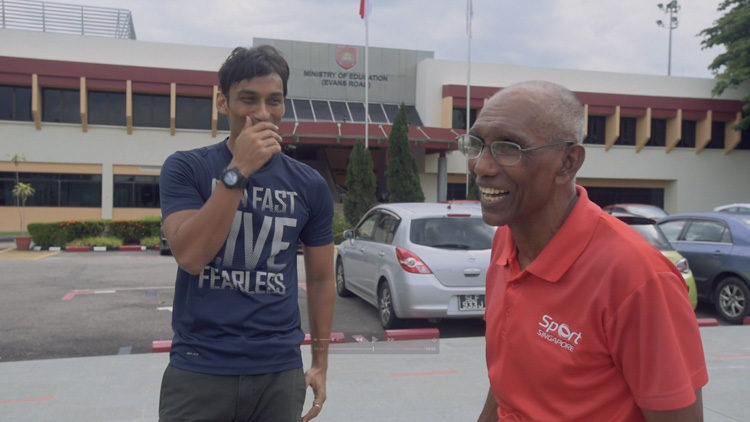
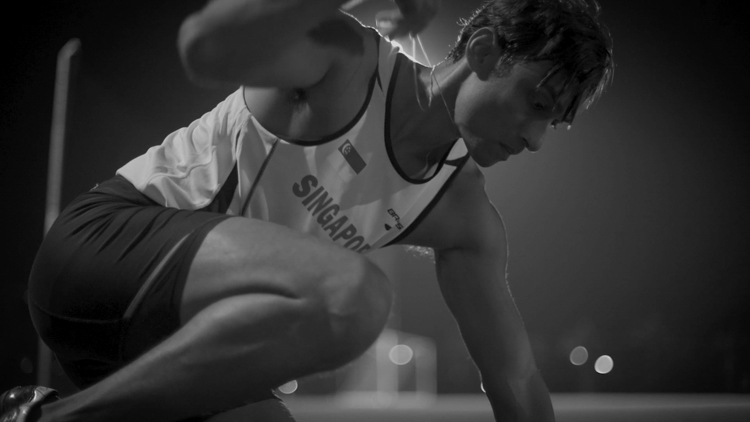
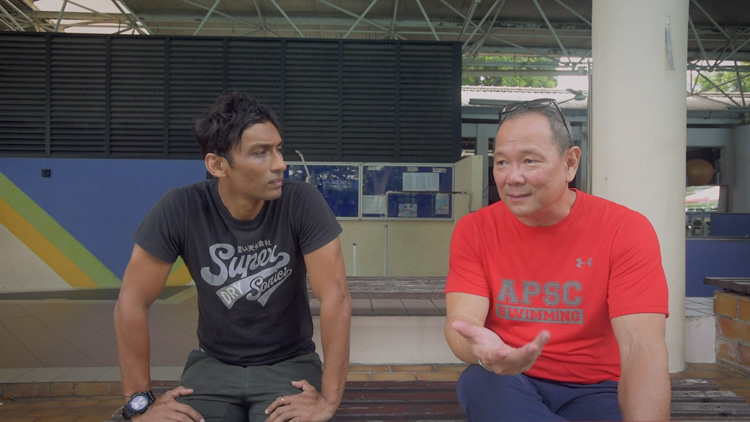
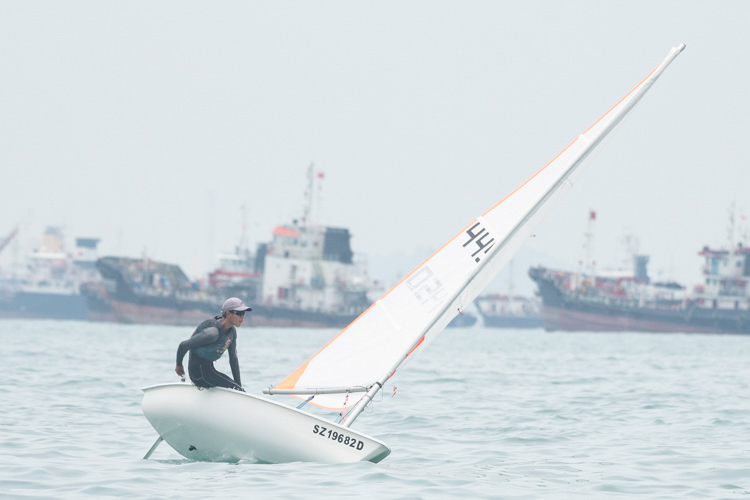
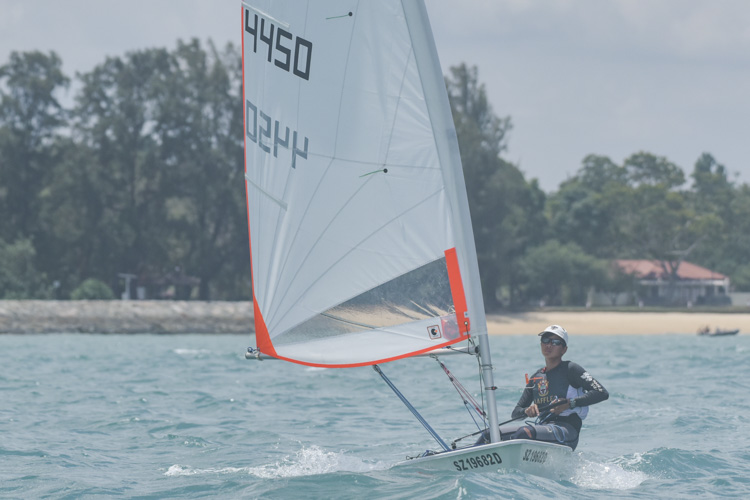
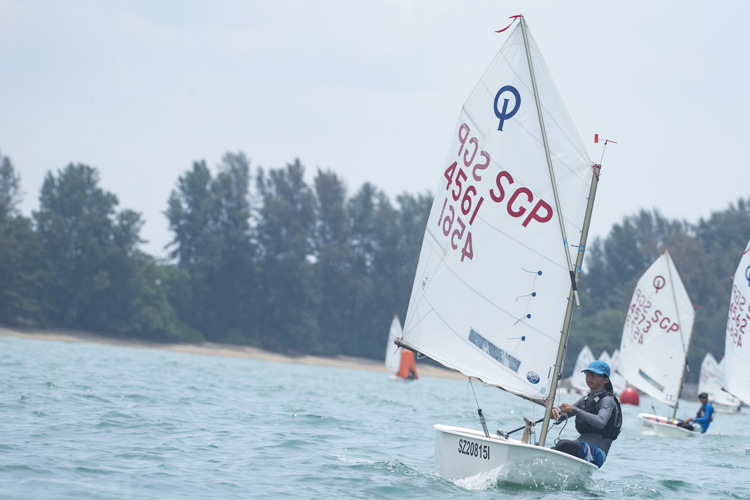
[…] with Ben Tan – Part 1 “I was top 3 but got no CCA points.†An interview with Ben Tan – Part 2 “If you don’t have a good crew, you’re useless because you’re only the drive… “It is very stupid to assume your opponents are less talented.†An interview with Ben Tan – […]
[…] Related stories “I nearly flunked my PSLE.†An interview with Ben Tan – Part 1 “If you don’t have a good crew, you’re useless because you’re only the driver.†An intervi… […]